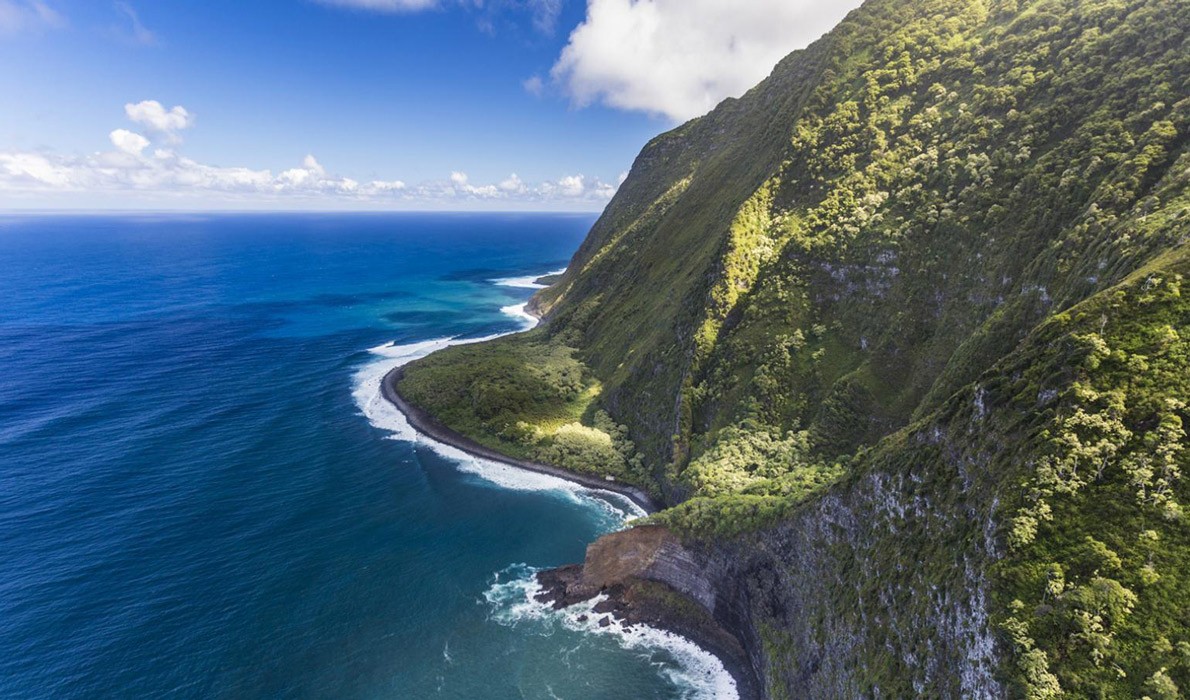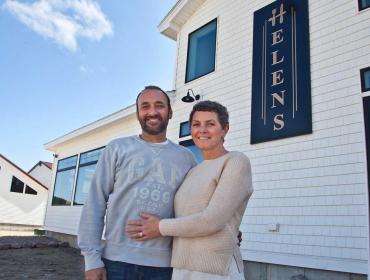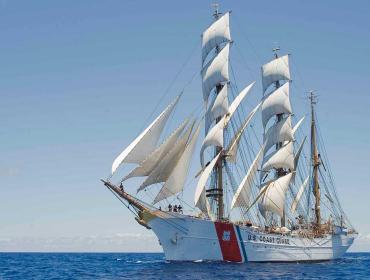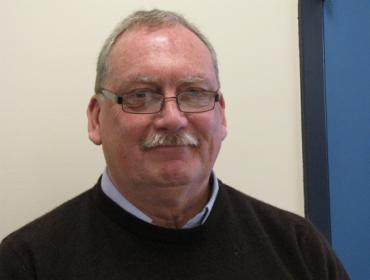Posted April 25, 2018
Last modified April 25, 2018
I’ve given presentations at many island and coastal community meetings over the past 15 years, and I believe all of them have been in Maine. But now, I was preparing to present to a group on Molokai Island in Hawaii.
I was invited by the group Sustainable Molokai to join other community development groups that work in island and remote communities from the EU, Australia, and Japan. Molokai is a small island with a population of about 7,000 people, and they are dealing with difficult questions about the future of its economy and a mandate to transition to clean energy. Hawaiian native culture plays a prominent role in many aspects of island life.
Beyond this, I knew little about the community and so it was difficult to plan a useful a presentation. I anticipated a room of people looking at me with an appropriate level of skepticism, wondering if this person from away had anything to offer.
How best to communicate in this setting? What of my experiences of Maine would apply here? Well, humor worked.
Fortunately, a friend from Denmark softened up the crowd. He has a saying that rings surprisingly and embarrassingly true when working in communities, whether it’s your own or not: “New communication arises when you allow yourself to be stupid, lazy, and yourself.” His point is that new solutions to community problems often arise when you feel comfortable making mistakes, sharing incomplete thoughts, or just hanging around drinking beer and shooting the breeze.
His observation about being “stupid and lazy,” and poking fun at the caricatures of people in his own island community, won over the crowd.
I opened my presentation with a photo of the cover of Phil Crossman’s book Away Happens. (Phil lives on Vinalhaven, and he writes the Observer column for The Working Waterfront.) In the photo, a naked man looking away from the camera stands on a dock with his suitcase, waving to a ferry that he has missed, presumably hoping it will turn back and pick him up. Encapsulated in this image is the idea of the superiority of islander knowledge of their place, and the sometimes comical ways islanders see those from away.
And there is a bit of the universal island humor in the joke. My audience enjoyed the laugh. It turned out that among Hawaiians, the idea of “islander” and “from away” makes sense.
The word pioneer came up several times, in the sense of a person who is among the first to explore. On Molokai, “pioneer” was used to talk about exploring practical solutions for sustaining the many communities within the larger Molokai community.
The pioneers in the room were practical problem solvers, tackling some big problems, such as: How do you effectively organize a community to negotiate with a utility company to get clean energy? How do you finance partial ownership of a renewable energy system?
I see these same questions posed in other community challenges, from getting broadband internet to preparing for rising sea levels. The communities that solve these problems first and create the models that can be shared with others become the pioneers. Their ability to share their solutions with a sense of humor may be what translates their ideas to island and remote communities.
The Island Institute is focused on partnering with island and coastal communities in Maine as they pioneer practical solutions to community sustainability. We are working through what it means to be connected to places like Molokai. This experience made it clear that we have valuable insights to share with the Hawaiian islands based on our partnerships here in Maine. We need to continue to work out how to be sure these types of partnerships return value to communities along the Maine coast.
Rob Snyder is president of the Island Institute, publisher of The Working Waterfront. Follow Rob on Twitter @ProOutsider.

Contributed by




